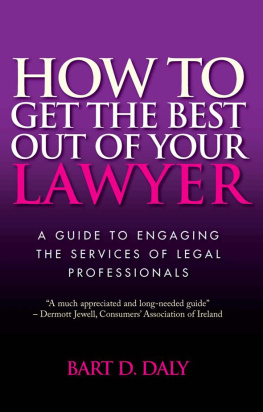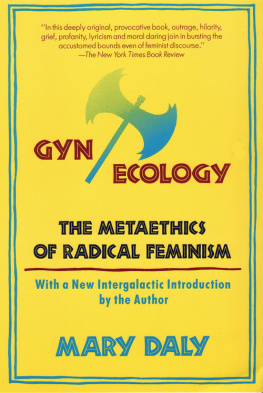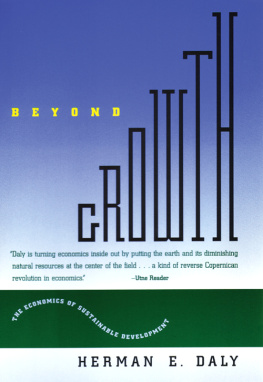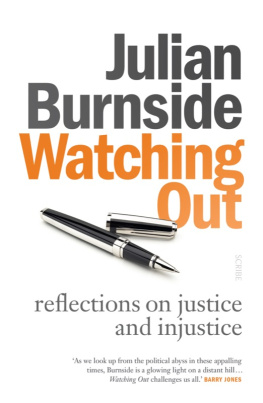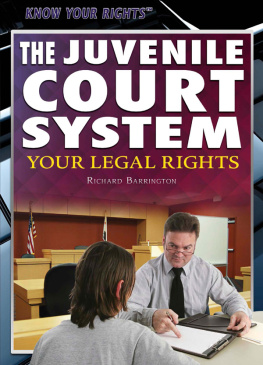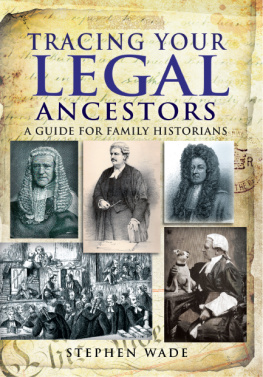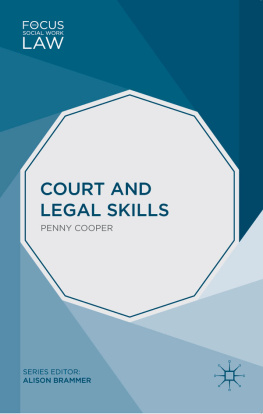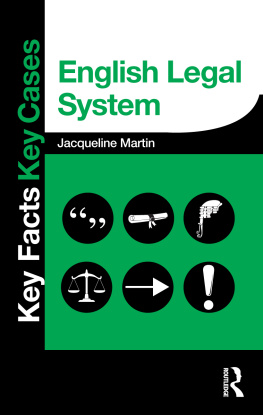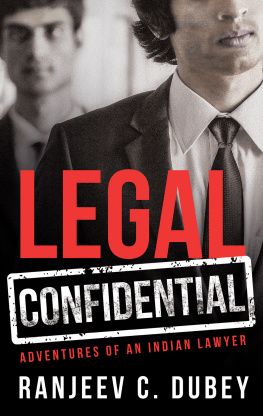Disclaimer
While every care has been taken in the production of this book, no legal responsibility is accepted, warranted or implied by the author, editor or publisher in respect of any errors, omissions or mis-statements. You should always seek professional or legal advice from a suitably qualified person when appropriate.
How to Get the Best Out of Your Lawyer
A Guide to Engaging the Services of Legal Professionals
Bart D. Daly
Published by
Orpen Press
Lonsdale House
Avoca Avenue
Blackrock
Co. Dublin
Ireland
e-mail: info@orpenpress.com
www.orpenpress.com
Bart D. Daly, 2012
Paperback ISBN 978-1-871305-78-4
ePub ISBN 978-1-871305-90-6
Kindle ISBN 978-1-871305-91-3
A catalogue record for this book is available from the British Library. All rights reserved. No part of this publication may be reproduced, stored in a retrieval system or transmitted in any form or by any means, electronic, mechanical, photocopying, recording or otherwise, without the prior, written permission of the publisher.
This book is sold subject to the condition that it shall not, by way of trade or otherwise, be lent, resold, hired out, or otherwise circulated without the publishers prior consent in any form of binding or cover other than that in which it is published and without a similar condition including this condition being imposed on the subsequent purchaser.
To Stephanie, Harrison, Hannah-Sioux and Poppy
For the majority of consumers the engagement of and with legal professionals is an uncomfortable one. This is because there are so many varied and personally challenging elements involved that must be comprehensively addressed and dealt with. Generally, and certainly until the publication of this guide, that engagement has involved little, if any, knowledge or understanding of the protocols that should be determined by the consumer for the service from the outset and throughout the arrangement.
What is special about this much appreciated and long-needed guide is that Bart Daly provides Irish consumers with specialist information and education in clear and readily understandable terms something of a rarity in the area of legal tomes. Here he provides what will be for a great many readers an illuminating and positive step-by-step pathway that permits full insight into and a clear understanding of our varied legal services and their providers. He achieves this by setting out those steps that must, of necessity, be taken by both customer and advisor if they are to jointly, affordably and successfully engage.
Importantly too, this is a guide for both the personal and the business consumer of these essential inescapable life-demanding service engagements. For many, the choice of solicitor or legal advisor comes through the recommendation of family or friends. Word of mouth plays a large part here. Now though, at long last, we have here the means to exercise personal consumer choice from an informed position. This is because the practicalities are addressed comprehensively in the guide. The dos and donts are well-signalled and allow the consumer prepare and outline, specifically, what are their needs and expectations. We learn of the importance of communicating, of questioning, of comprehensively conferring and of keeping records, notes and copies of all documentation. Of primary importance, always, is cost and Bart does not glance across the issue in general terms but rather he focuses clearly on the need to know, at all times, what are the costs and why they are necessitated. He balances his advice by reminding the reader that we are dealing with experts here whose expertise has a value that must also be acknowledged and regarded. Quid pro quo takes its rightful place alongside caveat emptor .
The provision and protection of our rights, the entitlement to our due respect and the protection of what is ours whether it be our land, our family, our good name, our personal information or our last wishes for those we hold near and dear all require the oversight and professional consideration of lawyers. Bart ensures that he equips us with the means of determining our needs, of preparing our questions and of communicating them with confidence. With this guide comes a rare opportunity to take control of your requirements and in so doing dispense with that worry that has until now left you uncomfortable and therefore at a distinct disadvantage at these most important of occasions and interactions with members of the legal profession.
It is a pleasure to introduce a book that presents the opportunity to benefit so many consumers on what will be the many different occasions occurring throughout the course of their lives and the lives of their families. This gem provides a clear, concise and understandable explanation for the consumer that empowers them to personally facilitate a resolution of their legal problems and requirements.
Bart Daly has written this guide for you. It is your need that is prioritised here and you will not be disappointed.
Dermott Jewell
Chief Executive
Consumers Association of Ireland
31 August 2012
It is inevitable that at some stage you will need a lawyer. Like every profession or trade, there are good ones and not so good ones. However, ending up with the latter may simply be a matter of choosing the wrong one. But it should not be a case of good luck in finding the best lawyer for you.
This book is intended to help you make an informed choice and get the best lawyer for your particular need.
I use the general term lawyer as it is commonly used, even though in Ireland it is technically incorrect. Here we use solicitors and barristers and I distinguish them in their roles within the book. When referring to both of them I use the word lawyer. A solicitor is your first port of call; they advise clients on legal matters, represent clients in certain lower courts, and prepare cases for barristers to present in the higher courts. A barrister is brought in by a solicitor for cases that go before the higher courts. The thrust of this book will deal with solicitors.
Lawyers are commonly brought in after a problem has arisen and often the client has an expectation that the lawyer will sort it.
Lawyers are trained and experienced at advising on a variety of legal matters and initiating or defending litigation. They are not magicians, so the client should have realistic expectations of the outcome once the lawyer is on board.
The intervention of a lawyer can bring about a positive outcome or reduce the exposure you might otherwise have, but these are dependent on a whole range of factors. For this reason a (good) lawyer will not make statements like we will win this case. They can offer their opinion on whether your case is strong or weak, subject to a complete appraisal of the facts.
I hope readers will find this book a useful guide to engaging the services of legal professionals. They are there to help you and if you have a clear understanding of how the system works this should remove any of the unknown factors and enable you work with your lawyer for a common purpose and result.
I would like to thank Dermott Jewell, Chief Executive of the Consumers Association of Ireland, for reading this book and writing the foreword. As the book is intended for consumers and corporate markets, his involvement is most appropriate and indeed welcome.
I would also like to acknowledge and thank the Courts Service of Ireland for permission to reproduce Appendix I: The Courts and the Law Society of Ireland for permission to reproduce Appendix III: Periods of Limitation. The Bar Council of Ireland kindly read over the section applicable to barristers my thanks goes to them too.

